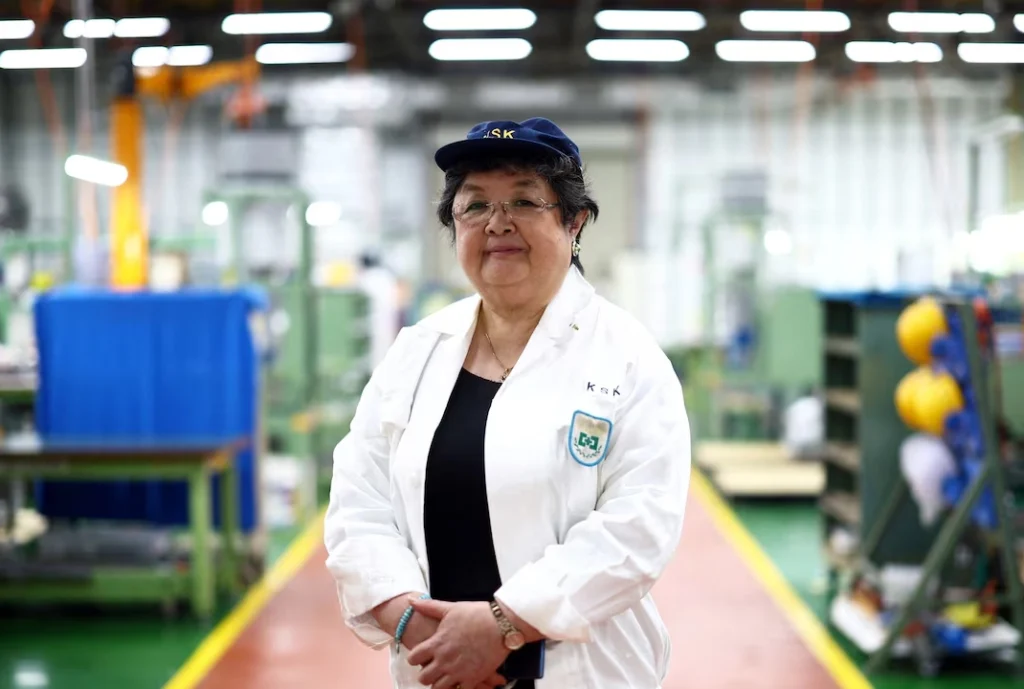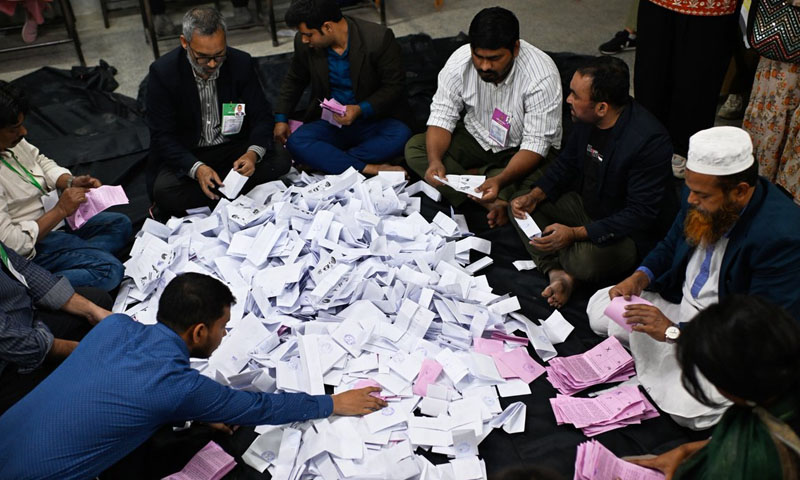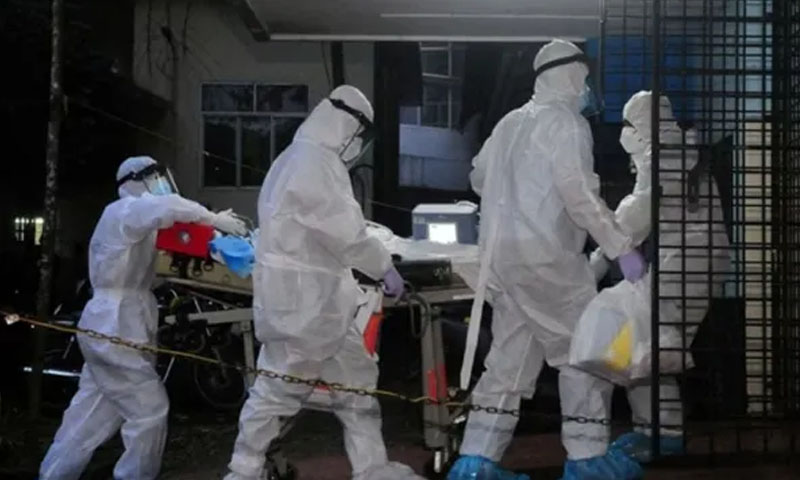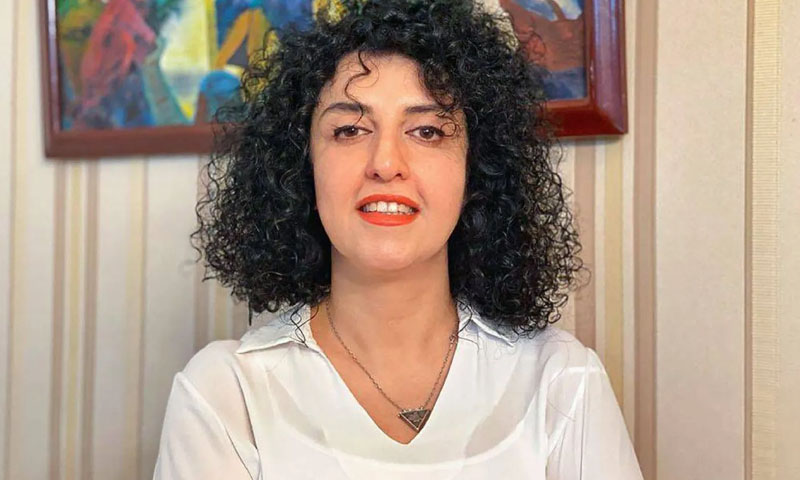- Web Desk
- Today
Tariff crossfire hits Toyota, Nissan, Ford suppliers in Japan
-

- Reuters
- May 23, 2025

TAKASAKI: Four decades ago, Hiroko Suzuki’s father threaded the needle of a US trade war by pushing the family auto-parts business into newer niche products. Now, tariffs imposed by the Trump administration are so sweeping they threaten her own attempt to diversify the 78-year-old company into medical devices.
Prime Minister Shigeru Ishiba has called the US tariffs, including 25 per cent on automobiles, a “national crisis” for the world’s fourth-largest economy. Japan’s top trade negotiator, Ryosei Akazawa, headed to Washington on Friday for a third round of talks.
The worry is evident at companies like Kyowa Industrial, a maker of prototype parts and race-car components based in Takasaki, north of Tokyo. Kyowa, which employs 120 people, was among six auto suppliers that told Reuters they were concerned about their ability to withstand the tariff pressure on Japan’s car industry.
“What in the world are we going to do?” Suzuki, Kyowa’s third-generation president, recalled thinking when the tariffs were announced. “This is going to be bad.”
The problems Kyowa and other auto suppliers face illustrate a decades-long shift in Japan, which no longer floods the world with chips and consumer electronics and is reliant on an auto industry threatened by intense Chinese competition. That marks a contrast with the 1980s, when the US slapped trade barriers on a rising Japan and its then-barnstorming exports.
This report, which is based on interviews with a dozen people, including industry executives, bankers and senior government officials, provides a first-hand account of how one firm is grappling with the uncertainty, and details the deepening squeeze on the automotive supply chain at a time of profound disruption.
Kyowa and thousands of other small manufacturers comprise an auto-supply network that has for decades pursued a “monozukuri” (literally, “making things”) approach to production. That culture of incremental improvement and assembly-line efficiency, based on methods developed by Toyota, helped make Japan a juggernaut.
But the shift to battery-powered smart cars has meant software, in which EV makers such as Tesla and China’s BYD excel, has become a bigger selling point.
Kyowa started developing neurosurgery instruments in 2016 after Suzuki, now 65, realised the rise of EVs would eventually hammer demand for engine components. It began selling the instruments in the US last year, only to find that Trump’s tariffs also applied to medical devices.
Kyowa doesn’t export auto components to the US, but Suzuki worries automakers will force suppliers to cut prices to offset tariffs. So far, that hasn’t happened to her.
One Subaru Corp supplier said his company may have to start looking for partners expanding outside the US.
Major automakers have largely offered muted support for suppliers since Trump’s tariff announcements. Last month, Toyota, Nissan and Ford sent letters to the US arms of some Japanese suppliers asking for cooperation in the face of tariffs, according to copies reviewed by Reuters, without offering specifics.
The letters haven’t been previously reported.
Nissan told suppliers they should stick to previously agreed prices. It said it was “not obliged” to bear the costs of tariffs but that it would shoulder some of the hit for up to four weeks to help secure its supply chain. It added that it could later seek to recover any support payments to suppliers.
Reuters couldn’t determine how much support, if any, Nissan extended. The automakers haven’t sent follow-up letters, according to two suppliers, who allowed Reuters to review the correspondence on condition of anonymity.
Nissan told Reuters it was working with suppliers to mitigate the tariff impact and contain costs, including through localisation.
Toyota said it would seek to protect its suppliers, dealers, and employees while maintaining customers’ trust as it navigated the uncertainty created by the tariffs. Ford told Reuters it was working with suppliers to assess their exposure and potentially reconfigure processes and sourcing.
In its letter, Toyota said it understood the “complexity and financial burden some suppliers are facing” and asked suppliers to identify and share mitigation measures. Toyota would work with suppliers “in good faith”, it said.
Some Toyota suppliers, including Denso have not given earnings forecasts for the coming year, citing uncertainty.
Julie Boote, an analyst at research firm Pelham Smithers Associates, said the trade war posed an “emergency” for Japan’s auto industry that would hasten consolidation.
“In order to survive, these automakers will have to work together,” she said.
SQUEEZED ON COST
Japanese manufacturers traditionally put pressure on smaller suppliers to lower prices, said Sayuri Shirai, a former Bank of Japan board member who is now a professor at Keio University.
If the tariffs remain in place in the longer term, it would spell more damage for regional economies hollowed out by demographic decline, she said.
The risks for Japan are already clear. The economy shrank in the first quarter, and Tokyo has compiled emergency economic measures to ease the pain of tariffs.
“Automobile exports are just too important to Japan for a 25 per cent tariff to stay in place,” said David Boling, a former US trade official who is now a director at consulting firm Eurasia Group.
Boling said the US is unlikely to go below the 10 per cent it agreed with Britain.
Trump introduced a 25 per cent tariff on automobiles and later a 24 per cent tariff on all Japanese goods. The latter was slashed to 10 per cent for 90 days, which runs out in July.
Akazawa, the trade envoy, on Tuesday said Japan was sticking to its guns and wanted tariffs eliminated. A White House spokesperson declined to comment on the negotiations.
A US State Department spokesperson said the Trump administration wanted trading partners to align with US efforts to achieve “fairness and balance in our trading relationships and protect US economic and national security.”
Two senior Japanese officials told Reuters Japan’s auto industry was increasingly looking like a laggard and needed to use the tariffs as an opportunity to implement sweeping changes to catch up with EV rivals.
In a statement, the trade ministry said that regardless of US tariffs, Japan’s auto industry needed to respond to significant changes in the competitive environment.
Japan’s top auto suppliers, called Tier 1, procure parts from Tier 2 suppliers, and so on down the chain. At the bottom are firms that can be little more than neighbourhood workshops grinding out a single part.
Government officials have previously urged smaller companies to innovate and consolidate, to gain scale.
At regional lender Ashikaga Bank, an automotive industry team supports some 200 companies, around 80 per cent of which are Tier 2 or lower suppliers. A member of the team not authorised to speak publicly said they worried tariffs would lead to higher vehicle prices and a decline in Japanese car sales in the US, hitting the bank’s clients.
Shinichi Iizuka, president of Toa Kogyo, a suspension maker in Subaru’s hometown of Ota, near Takasaki, said the tariff burden will likely be shared by consumers, car dealers, automakers and suppliers.
Some 70 per cent of Subaru’s car sales are in the US, where it relies on both local manufacturing and imports. On Monday, Subaru said it would raise prices on several US models.
Subaru CFO Shinsuke Toda this month said it was willing to talk with suppliers about sharing their burden, adding the situation remained unclear.
IT’S PERSONAL
Suzuki’s drive to diversify Kyowa Industrial into medical devices mirrors the pivot made by her father during the 1980s trade friction, when Kyowa ditched mass production of less-profitable auto parts to focus on higher-margin prototypes and racing-engine components. Suzuki took over in 2000 and her father died in 2013.
Before Trump’s tariffs, Suzuki had planned to build a US track record in sales of medical equipment to smooth entry into other markets. With the advent of the US trade barriers, she said her team considered moving production to the US, where costs are high, or shifting the sales focus to Asia.
Given the uncertainty around Trump’s announcements, Kyowa is in talks with potential distributors in Singapore and Hong Kong, Suzuki said.
Around 70 per cent of Kyowa’s business still comes from automakers, while chip-equipment makers and Japan’s space program contribute to the remainder. It supplies most Japanese car makers, General Motors and parts for Formula One race cars.
Annual sales are a modest 2 billion yen ($14 million). Still, Kyowa is larger than three-quarters of the roughly 68,000 companies that make up Japan’s auto-supply chain, according to research firm Teikoku Databank.
For Suzuki, trade friction is also personal, given her deep affection for the US She grew up listening to rock music on US armed forces radio, learned English and went to university in America. She remembers seeing Aerosmith live at their first concert in Japan.
“Japan and America have a long history of friendship. I hope they can find a solution,” she said.
Also read: US tariffs could cost Japan’s top companies up to $27.6 billion




